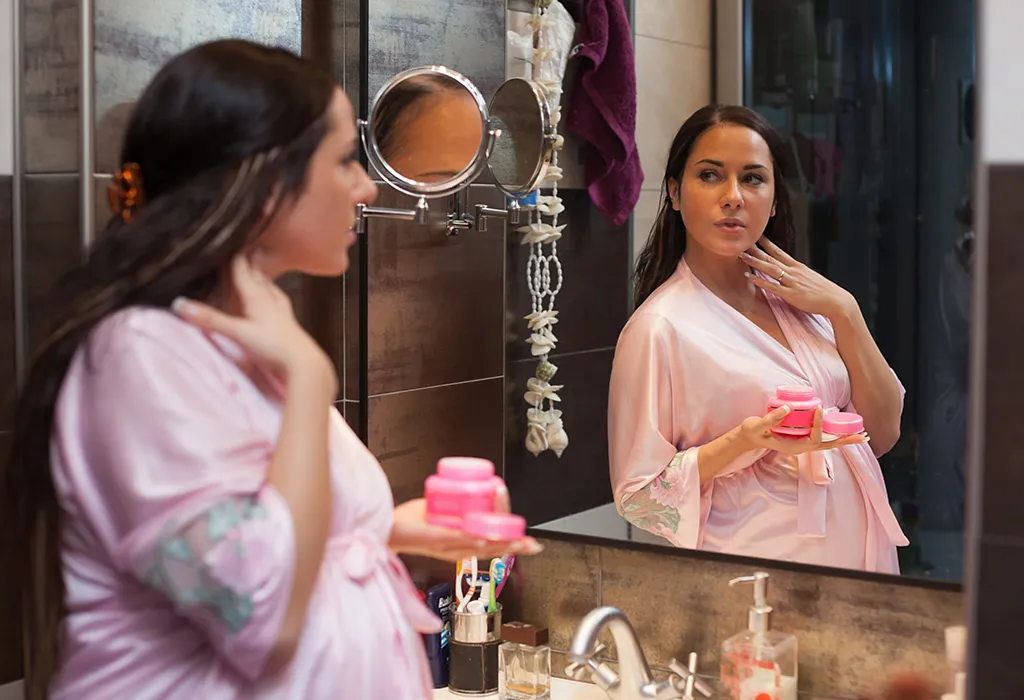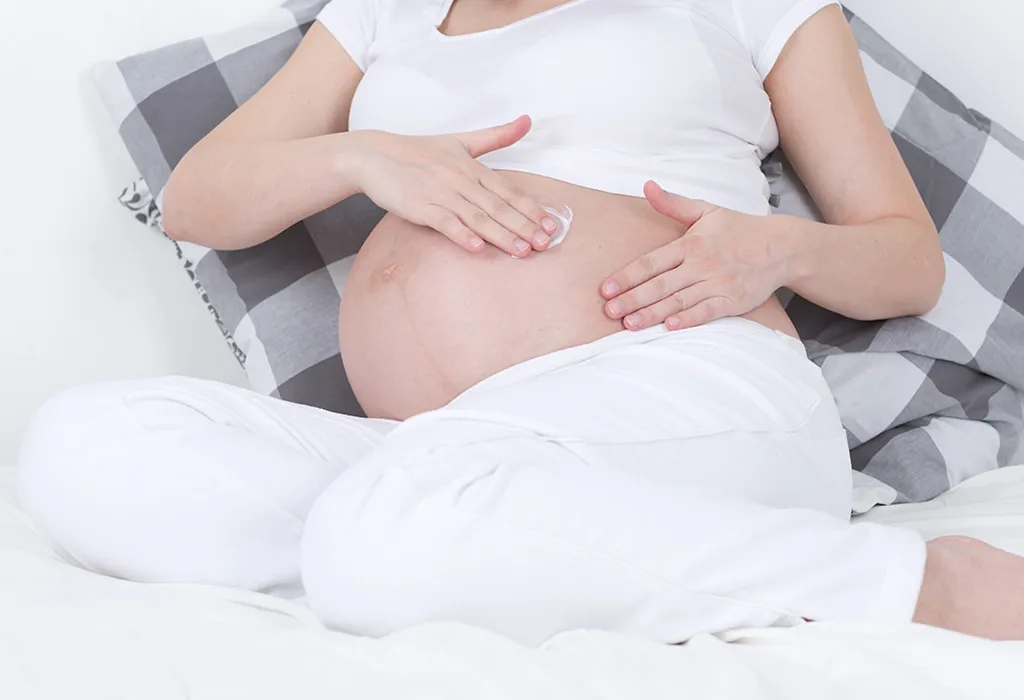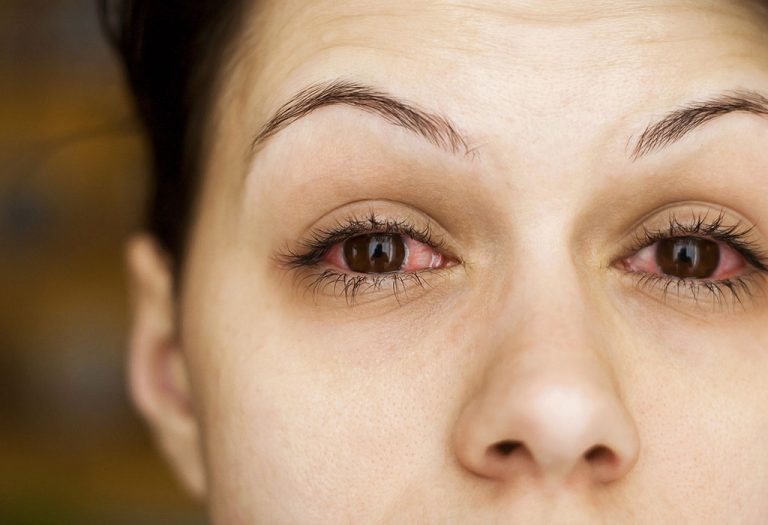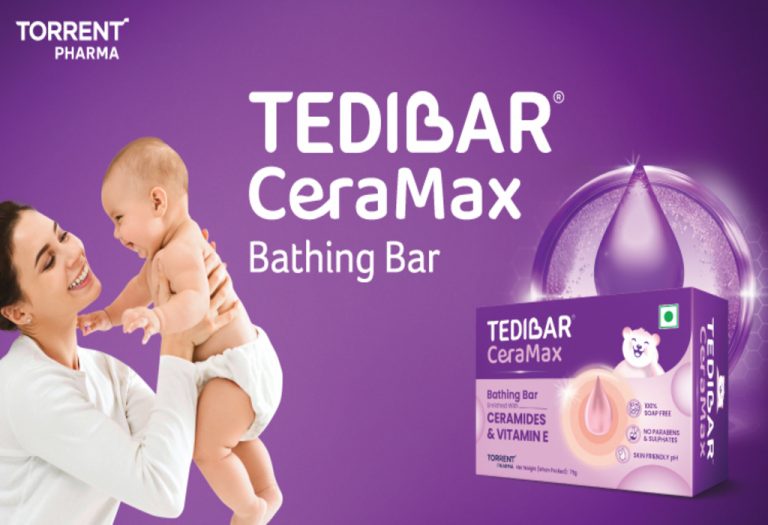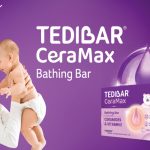Skin Care During Pregnancy: What Products to use & Beauty Tips

Being pregnant is hard enough without having to worry about the effects of what you are putting on your skin. Your hormones go haywire during pregnancy, and you just can’t predict if the products you use for your skincare routine will have an effect on your health. This makes it even more important to have a well-thought-out pregnancy skincare routine that is safe and effective.
While pregnancy is associated with the glow of the woman, there are plenty of other ways to ensure your skin is taken care of. By adopting the right skincare practices, you can maintain your skin’s health and radiance throughout your pregnancy. Read this article to know how you can take care of your skin during pregnancy.
Using Skincare Products in Pregnancy
There are many products that make up our routine for skincare while pregnant. From moisturisers to sunscreens and cold creams, there are many ‘essentials’ that we cannot do without. However, most of these products are made from strong chemicals such as benzoyl peroxide, salicylic acid, and hydroquinone. While there isn’t a consensus on whether these products cause any harm to you while pregnant, there are a few things you should keep in mind when using these ingredients.
- Hydroquinone: This ingredient has not been tested on either humans or animals during pregnancy which is why you will not find an answer as to whether it is safe to use during pregnancy or not. However, it is best that you avoid this compound during the term and even when breastfeeding.
- Benzoyl Peroxide: This is a common ingredient used to fight blemishes. In low concentrations of less than 5%, it is safe for use for pregnant women.
- Salicylic Acid: This is considered to be one of the best exfoliants available. However, avoid it when it comes in the form of professional peels as they have a high concentration of the ingredient. You can use it in low concentrations of less than 2%.
- Sunscreen actives: While many people warn against using sunscreen during pregnancy, there is no research to support this claim. In fact, many dermatologists recommend that you do use sunscreen while pregnant. If your skin is sensitive, then use a sunscreen with gentle mineral actives.
Which Product Ingredients Are Safe for Skin Care During Pregnancy?
There are a few ingredients that you must keep in mind when selecting products to use while you are pregnant. They have been tested and are safe for you and your baby.
- For acne: If you are facing pregnancy-related acne due to the changes in hormone levels, you can use products that contain rosehip seed, lactic seed, azelaic acid, and alpha hydroxyl acids.
- For hyperpigmentation: Melasma is caused by staying out in the sun and the change in hormone levels during pregnancy. You can use products that have azelaic acid or topical vitamin C.
- For wrinkles: The remedy for wrinkles and fine lines are products with hyaluronic acid or vitamin C. Most doctors will recommend that you do not opt for Botox treatments while you are pregnant.
- For free radical damage: The best way to correct free radical damage is by using products that have topical vitamin C or E.
Skincare Tips for Pregnant Women
When you are pregnant, it is best that you stick to a beauty routine that is basic and simple. Here are some of the ways you can ensure that your skin is taken care of while your baby develops:
1. Cleansing
When it comes to using facial cleansers in pregnancy, you should stick to products that are not residue or glycerine based. In case you have extremely dry skin, you must use a soap-less rinse-off cleanser that will hydrate your skin. Do not wash your face more than two times a day. Try to find a pregnancy-safe body wash that will keep your skin supple.
2. Moisturising and Sun Protection
You must, at all costs, remember to use a moisturiser with SPF 15 and broad-spectrum coverage. You are bound to find a pregnancy-safe moisturiser that will suit your needs. Do not forget to check the ingredients and make sure that you use it every day.
3. Makeup
Use products that have multiple uses. A foundation stick that doubles up as a concealer is ideal. Use mascara for a polished look and if you can’t do without a lipstick, use one that moisturises. Using skin lightening products during pregnancy is not recommended as they contain many chemicals that could be harmful.
4. Drink Plenty of Water
Staying hydrated is crucial for both your overall health and your skin’s appearance during pregnancy. Drinking plenty of water helps to flush out toxins from your body, which can contribute to clearer and more radiant skin. Proper hydration also supports healthy cell function and can help reduce common pregnancy-related issues such as dry skin and swelling. Aim for at least eight glasses of water a day.
5. Sleep
Fatigue is a common symptom during the first trimester of pregnancy, and getting sufficient sleep is essential to manage it effectively. Quality sleep helps your body recover and rejuvenate, which is vital for both you and your developing baby. Aim for 7-9 hours of restful sleep each night, and try to establish a consistent sleep schedule. Creating a relaxing bedtime routine and ensuring your sleep environment is comfortable can also improve your sleep quality.
6. Maintain the Right Weight
Gaining the right amount of weight during pregnancy is important for both your health and the baby’s development. A balanced diet rich in essential nutrients will help you achieve and maintain this target weight. Focus on eating a variety of fruits, vegetables, whole grains, lean proteins, and healthy fats while avoiding excessive sugary or processed foods.
7. Exercise
Regular exercise is beneficial for maintaining overall health and well-being during pregnancy. Engaging in pregnancy-safe exercises such as Lamaze classes, prenatal yoga, or swimming can help improve your strength, flexibility, and stamina. These exercises also promote better circulation, reduce stress, and can alleviate common pregnancy discomforts like back pain. Always consult your healthcare provider before starting any new exercise regimen to ensure it is safe for you and your baby.
8. Avoiding Stretch Marks
Stretch marks are a common concern for many pregnant women, as they result from the skin stretching rapidly to accommodate the growing baby. While some women are more prone to developing stretch marks, you can take preventive measures to minimize their appearance. Applying a specialized stretch mark cream or oil daily can help keep your skin moisturized and elastic. Additionally, maintaining a healthy weight and staying hydrated can support your skin’s ability to stretch without excessive damage.
Skin Care Products to Avoid During Pregnancy
There are a few products that are best avoided during pregnancy. Here, we talk about common products and how safe they are:
1. Sunscreen
While many people will tell you otherwise, you must use sunscreens every day, irrespective of the weather. Some dermatologists will tell you to use them even if you are staying indoors, all day. However, some sunscreen ingredients which one must avoid while pregnant are titanium oxide and zinc oxide since they get absorbed by the skin.
2. Hydroxy Acids
Acids like BHA and AHA are used in toners, cleansers, and exfoliants that claim to help with ageing. Salicylic acid is one of the most common BHAs and is the only one studied for its effects on pregnancy. As long as you use products that have a low dosage of salicylic acid, you should be fine. However, do not undergo facial and body peels as they have a high concentration of the ingredient.
3. Soy
Soy-based products are generally preferred by a lot of women as it is a natural product and is vegan. However, the estrogenic component of this ingredient can make melasma even worse. Use products that have active soy as the estrogenic components will be taken out.
4. Retinoids
Retinoids are a type of vitamin A that speeds up cell division and are used in creams that target anti-ageing and acne. An excess of vitamin A during pregnancy has shown to be harmful to the foetus. Retinoids, when taken orally, can cause birth defects. However, retinoids, in topical application, have not shown any adverse effects on the baby’s health. Doctors recommend that you do not use this ingredient as an extra caution.
5. Acne Products
With the changing oestrogen levels, most pregnant women will experience acne even if they’ve had clear skin before. Your doctor can recommend a topical antibiotic for the same. You must remember to avoid face products that include BHA or retinoids during pregnancy.
6. Steroids
Topical steroids are recommended for minor inflammations, rashes, and itches associated with eczema, dermatitis, and insect bites. These creams are considered safe to be used during pregnancy. However, do let the person prescribing the medication know that you are pregnant. To be double sure, check the safety of the product with your doctor.
7. Hair Removers & Minimisers
Using creams to remove unwanted hair or to delay its growth can be a blessing, especially when your mobility and flexibility is compromised as your pregnancy progresses. Fortunately, you can use these products if you follow the directions. Do an allergy test, as you can develop new allergies during pregnancy.
8. Essential Oils
Many women turn to essential oils for their natural and therapeutic benefits. However, some essential oils, such as rosemary and clary sage, can stimulate uterine contractions and should be avoided during pregnancy. Always consult your healthcare provider before using any essential oils.
9. Whitening or Brightening Creams
Whitening or brightening creams often contain hydroquinone, which is not safe to use during pregnancy. This ingredient can be absorbed through the skin in significant amounts, posing potential risks to the fetus. Opt for natural brightening ingredients like vitamin C instead.
Some cosmetic ingredients to avoid during pregnancy are:
- Aluminium chloride hexahydrate, which is found in antiperspirants. Check the label for this product.
- Diethanolamine or DEA, which is found in hair and other beauty products.
- Dihydroxyacetone or DHEA, found in spray tans and can cause damage if inhaled.
- Formaldehyde, which is found in hair straighteners, eyelash glue, and nail polishes.
- Phthalates, which are found in some fragrances and nail polishes.
10. Makeup
There are a few make-up products that need to be avoided during pregnancy as they contain chemicals that can hurt your skin during this fragile period. Try to get products that are specially marked “non-comedogenic” or “non-acnegenic” which means that they are oil-free and do not end up clogging pores.
Avoid cosmetics that contain retinol or salicylic acid (found in some makeup for acne-prone skin).
Here’s a list of some products that affect the baby by getting absorbed by the skin. These include the likes of:
- Differin (adapalene)
- Panretin (alitretinoin)
- Retin-A, Renova (tretinoin)
- Retinol
- Retinoic acid
- Retinyl linoleate
Skincare Treatments You Should Avoid During Pregnancy
- Tanning: This treatment could increase the core temperature of your body significantly. The tanning beds use UVA light, which could break down folic acid which is important for the development of your baby.
- Body wraps: Avoid these as they will increase your core body temperature.
- Peels: Chemical peels contain high levels of various chemicals, including salicylic acid.
When to Consult a Dermatologist?
You should visit a dermatologist for the same reasons you would if you weren’t pregnant. If you have any rashes, itchy patches, flaking skin, or bumps, do not hesitate to make an appointment with a skin doctor.
FAQs
1. Can using certain types of face masks cause complications during pregnancy?
Yes, some face masks, especially those with high levels of retinoids or other harsh chemicals, should be avoided. Look for masks that are specifically labeled as pregnancy-safe or choose ones with natural, gentle ingredients.
2. Are there risks associated with using anti-cellulite creams during pregnancy?
Many anti-cellulite creams contain ingredients that are not recommended during pregnancy, such as caffeine or certain retinoids. It’s best to avoid these products and consult your doctor for safer alternatives to address cellulite concerns.
This was all about skincare and pregnancy. Most pregnant women know that what they use on their body affects their child’s development. However, what you put on your body is also important. In case of any doubts regarding a product or skincare for pregnant women, do not use it until your doctor gives approval.
References/Resources:
1. Bozzo. P, Chua-Gocheco. A, Einarson. A; Safety of skin care products during pregnancy (Canadian Family Physician); National Library of Medicine; https://www.ncbi.nlm.nih.gov/pmc/articles/PMC3114665/; June 2011
2. Cosmetics & Pregnancy; U.S. Food & Drug Administration; https://www.fda.gov/cosmetics/resources-consumers-cosmetics/cosmetics-pregnancy
3. Exposing the Cosmetics Cover-up; Environmental Working Group; https://www.ewg.org/research/exposing-cosmetics-cover
4. LaPlante. C, Bansal. R, Dunphy. K, Jerry. D, Vandenberg. L; Oxybenzone Alters Mammary Gland Morphology in Mice Exposed During Pregnancy and Lactation (Journal of the Endocrine Society); Oxford Academic; https://academic.oup.com/jes/article/2/8/903/4999716; May 2018
5. About Formaldehyde and Reproductive Health; CDC National Institute for Occupational Safety and Health (NIOSH); https://www.cdc.gov/niosh/reproductive-health/prevention/formaldehyde.html
6. Skin changes in pregnancy; DermNet; https://dermnetnz.org/topics/skin-changes-in-pregnancy
7. Phthalates in Cosmetics; U.S. Food & Drug Administration; https://www.fda.gov/cosmetics/cosmetic-ingredients/phthalates-cosmetics
Also Read:
Glycolic Acid in Pregnancy
Facial During Pregnancy – Is It Safe?
Is It Safe to do Facial Bleach during Pregnancy?
Pregnancy Glow – What It Is and How to Maintain It
Was This Article Helpful?
Parenting is a huge responsibility, for you as a caregiver, but also for us as a parenting content platform. We understand that and take our responsibility of creating credible content seriously. FirstCry Parenting articles are written and published only after extensive research using factually sound references to deliver quality content that is accurate, validated by experts, and completely reliable. To understand how we go about creating content that is credible, read our editorial policy here.







